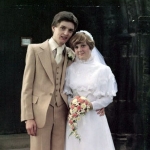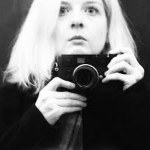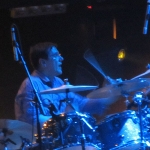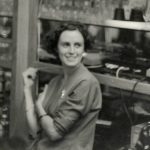Background
Curtis was born on 15 July 1956, at the Memorial Hospital in Stretford, Manchester, and grew up in a working-class household in Macclesfield, Cheshire. He was the first of two children born to Kevin and Doreen Curtis.

1978
Bernard Sumner, Peter Hook, and Ian Curtis of Joy Division.
1979
The Mayflower, Manchester, England, United Kingdom
Ian Curtis performing at The Mayflower in Manchester in 1979.
1979
Manchester, Engalnd, United Kingdom
Ian Curtis photographed in a Manchester art and furniture shop, January 6, 1979.
1979
Manchester, Engalnd, United Kingdom
Joy Division's Stephen Morris, Ian Curtis, Bernard Sumner and Peter Hook (from left) in Manchester, January 6, 1979.
1979
Lancashire, England, United Kingdom
Ian Curtis performing at the Leigh Open Air Pop Festival in Lancashire, England, August 1979.
1979
Russell Club, Manchester, Engalnd, United Kingdom
Ian Curtis performing at the Factory at the Russell Club, July 13, 1979.
1979
Manchester, Engalnd, United Kingdom
Joy Division rehearse in Manchester in 1979.
1979
YMCA London, London, England, United Kingdom
Joy Division at the YMCA London in August 1979.
Macclesfield's independent King's School
Manchester College

















Curtis was born on 15 July 1956, at the Memorial Hospital in Stretford, Manchester, and grew up in a working-class household in Macclesfield, Cheshire. He was the first of two children born to Kevin and Doreen Curtis.
From an early age, Curtis was a bookish and intelligent child, displaying a particular flair for poetry. He was awarded a scholarship at the age of 11 at Macclesfield's independent King's School. Here, he developed his interests in philosophy, literature, and eminent poets such as Thom Gunn. While at King's School, he was awarded several scholastic awards in recognition of his abilities - particularly at the ages of 15 and 16. The year after Ian had graduated from King's School, the Curtis family purchased a house from a relative, and moved to New Moston.
As a teenager, Curtis chose to perform social service by visiting the elderly as part of a school programme. While visiting, he and his friends would steal any prescription drugs that they found and later take them together as a group. On one occasion when he was 16, after consuming a large dosage of Largactil he and his friends had stolen, Curtis was discovered unconscious in his bedroom by his father and was taken to hospital to have his stomach pumped. Curtis had held a keen interest in music since the age of 12, and this interest developed greatly in his teenage years, with artists such as Jim Morrison and David Bowie being particular favourites of his, and thus influencing his poetry and art. Curtis could seldom afford to purchase records, leading him to frequently steal them from local shops. By his mid-teens, Curtis had also developed a reputation among his peers as a strong-willed individual, with a keen interest in fashion.
Despite gaining nine O-levels at King's School, and briefly studying A-Levels in History and Divinity at St. John's College, Curtis soon became disenchanted with academic life, and abandoned his studies to commit himself to finding employment. Despite abandoning his studies at St. John's College, Curtis continued to focus on the pursuit of art, literature and music, and would gradually draw lyrical and conceptual inspiration from ever more insidious subjects.
Curtis obtained a job at a record shop in Manchester City Centre, before obtaining more stable employment within the civil service. His employment as a civil servant saw Curtis initially deployed to Cheadle Hulme, where he worked for several months with the Ministry of Defence, before he was offered alternate employment within the Manpower Services Commission in a building at Piccadilly Gardens. He later worked as a civil servant in Woodford, Greater Manchester, although at his request, approximately one year later, Curtis was posted to Macclesfield's Employment Exchange, where he worked as an Assistant Disablement Resettlement Officer.
At a July 1976 Sex Pistols gig at Manchester's Lesser Free Trade Hall, Curtis encountered three childhood school friends named Bernard Sumner, Peter Hook, and Terry Mason. The trio informed Curtis - whom they had seen at earlier punk gigs at The Electric Circus - of their intentions to form a band, and Curtis informed them of his then-recent efforts to do likewise, before proposing himself as both their singer and lyricist. Initially, Mason became the band's drummer, but his rehearsal sessions were largely unproductive, and he briefly became the band's manager. The group then unsuccessfully attempted to recruit several drummers before selecting Stephen Morris in August 1977. The band was later managed by Rob Gretton, who - having already seen Joy Division perform live at local venues such as Rafters - offered to become their manager in 1978.
Initially, the band named themselves "Warsaw", from the title of a song on David Bowie's then-recent album Low, but as this name somewhat conflicted with that of a London-based group named "Warsaw Pakt", they renamed themselves "Joy Division". This moniker was derived from the 1955 novel The House of Dolls, which featured a Nazi concentration camp with a sexual slavery wing called the "Joy Division". The cover of the band's first EP depicted a drawing of a Hitler Youth beating a drum and the A-side contained a song, "Warsaw", which was a musical retelling of the life of Nazi leader Rudolf Hess.
After founding Factory Records with Alan Erasmus, Tony Wilson signed the band to his label following the band's first appearance on the TV music show he hosted, So It Goes, in September 1978. This appearance had been largely prompted by an abusive letter sent to Wilson by Curtis, and saw the band play the song "Shadowplay".
Although predominantly a singer, Curtis also played guitar on a handful of tracks (usually when Sumner was playing synthesizer; "Incubation" and a Peel session version of "Transmission" were rare instances when both Sumner and Curtis played guitar). Initially, Curtis played Sumner's Shergold Masquerader, but in September 1979 he acquired his own guitar, a Vox Phantom VI Special (often described incorrectly as a Teardrop or ordinary Phantom model) which had many built-in effects used both live and in studio.
In the early hours of 18 May 1980, Curtis killed himself by hanging himself in the kitchen of his house at 77 Barton Street, Macclesfield. He was 23 years old. His wife Deborah found his body the next morning; he had used the kitchen's washing line to hang himself after having written a note to her in which he declared his love for her despite having recently conducted an affair with Honoré.
At the time of his suicide, Joy Division were on the eve of their debut North American tour, and Deborah Curtis has stated Ian had viewed this upcoming tour with extreme trepidation, not only because of his extreme fear of flying (he had wanted to travel to America by ship), but because he had also expressed deep concerns as to how American audiences would react to his epilepsy. Deborah Curtis has also claimed Ian had confided in her on several occasions that he held no desire to live past his early twenties. He had furthermore expressed to both his wife and Annik Honoré his deep concerns as to his medical condition being likely to kill him in addition to his receiving mockery from the band's audiences, and that this mockery would only increase from the band's impending American audiences on their upcoming tour.
Curtis's body was cremated at Macclesfield Crematorium on 23 May; his ashes were later buried at Macclesfield Cemetery. A memorial stone, inscribed with "Ian Curtis 18 – 5 – 80" and "Love Will Tear Us Apart", was placed above his ashes.
Ian helped Margaret Thatcher into power by voting Conservative in 1979, reportedly as a protest against the Labour government of James Callaghan.
Curtis was the band's sole lyricist, and he typically composed his lyrics in a notebook, independently of the eventual music to evolve. The music itself was largely written by Sumner and Hook as the group jammed during rehearsals. Curtis's imagery and word choice often referenced "coldness, pressure, darkness, crisis, failure, collapse, loss of control". In 1979, NME journalist Paul Rambali wrote, "The themes of Joy Division's music are sorrowful, painful and sometimes deeply sad." Music journalist Jon Savage wrote that "Curtis's great lyrical achievement was to capture the underlying reality of a society in turmoil, and to make it both universal and personal," while noting that "the lyrics reflected, in mood and approach, his interest in romantic and science-fiction literature."
Quotations:
"You're always working to the next song. No matter how many songs you've done, you're always looking for the next one."
"Some things never make sense."
"We resist all of times mutations."
"I don’t write about anything in particular, I write very subconsciously."
"Everyone's living in their own little world."
“Reality is only a dream, based on values and well worn principles, whereas the dream goes on forever.”
Curtis was known for his bass-baritone voice, dance style, and songwriting typically filled with imagery of desolation, emptiness, and alienation. While performing with Joy Division, Curtis became known for his quiet and awkward demeanour, and a unique dancing style often reminiscent of the epileptic seizures he began experiencing in late 1978.
Physical Characteristics:
Curtis began suffering epileptic fits in late 1978; he was officially diagnosed with the condition on 23 January the following year, with his particular case being described by doctors as so severe, his "life would [be] ruled to obsolescence by his severe epilepsy" without the various strong dosages of medications he was prescribed. Having joined the British Epilepsy Association, Curtis was initially open to discuss his condition with anyone who inquired, although he soon became withdrawn, and reluctant to discuss any issue regarding his condition beyond the most mundane and necessary aspects. On each occasion it became apparent a particular prescribed medication failed to control Curtis's seizures, his doctor would prescribe a different anticonvulsant, and his wife noted his being "full of renewed enthusiasm" that this particular formulation would help him bring his seizures under control.
Throughout 1979 and 1980, Curtis's condition gradually worsened amid the pressure of performances and touring, with his seizures becoming more frequent and more intense. Following his diagnosis, Curtis continued to drink, smoke, and maintain an irregular sleeping pattern - against the advice given to those suffering from the condition. The medications Curtis was prescribed for his condition produced numerous side effects, including extreme mood swings. This change in personality was also observed by Curtis's wife, family and in-laws, who noted how taciturn he had become in his wife's company. Following the birth of his daughter in April 1979, because of the severity of his medical condition, Ian was seldom able to hold his baby daughter in case he compromised the child's safety.
Quotes from others about the person
Peter Hook: "A poetic, sensitive, tortured soul, the Ian Curtis of the myth - he was definitely that."
On 23 August 1975, Curtis married Deborah Woodruff, to whom he was introduced by a friend, Tony Nuttall. Ian and Deborah initially became friends then began dating in December 1972, when both were 16 years old. Their wedding service was conducted at St Thomas' Church in Henbury, Cheshire. Curtis was 19 and Woodruff 18. They had one child, a daughter named Natalie, born on 16 April 1979.

Ian met Debbie when he was only sixteen. Their first date was to see David Bowie’s performance of Ziggy Stardust in Manchester. Despite his father’s reservations, Ian sold his guitar to buy a wedding ring for his one true love. He took a job as a civil servant and they bought a house together, though Ian’s rock n’ roll fantasies never wavered.
According to Debbie, her husband was consumed by incorrigible jealousy. She claims that he only proposed to keep other men from showing her too much attention. Ian did tend to freak out a lot, like the time he saw his wife-to-be dancing with one of her young uncles at their engagement party and threw a Bloody Mary in her face. He was constantly worried that Debbie would meet someone else, and refused to let her wear anything remotely sexy out of the house.

Ian and Debbie’s daughter, Natalie, was born in the spring of 1979 during the recording of Unknown Pleasures. Ian witnessed the birth, but it was a momentary connection for a young man prone to detachment. While Debbie poured her affection onto her newborn baby, Ian’s eyes were fixed on the stars.

Bernard Sumner is an English singer, songwriter, musician and record producer. He is a founding member of both Joy Division and New Order, and is widely credited with the latter band's move towards electronica and synthpop.

Peter Hook is an English singer, songwriter, composer, multi-instrumentalist and record producer. He is best known as the bassist and co-founder of English rock bands Joy Division and New Order.

Stephen Paul David Morris is an English multi-instrumentalist, composer and record producer who is best known for his work with the rock band New Order and, previously, Joy Division.

Curtis's widow has claimed that, in October 1979, Curtis began conducting an affair with the Belgian journalist and music promoter Annik Honoré, whom he had first met at a gig held in Brussels that month. Reportedly, despite the fact he had for many years exhibited a somewhat controlling attitude within their relationship (which had included minimising any opportunity for his wife to come into contact with other men), Curtis was consumed with guilt over this affair due to being married, and the father to their baby daughter, but at the same time still yearning to be with Honoré. On one occasion in 1980, Curtis asked Bernard Sumner to make a decision on his behalf as to whether he should remain with his wife or form a deeper relationship with Honoré; Sumner refused. Honoré claimed in a 2010 interview that although she and Curtis had spent extensive periods of time in each other's company, their relationship had been a platonic one.
